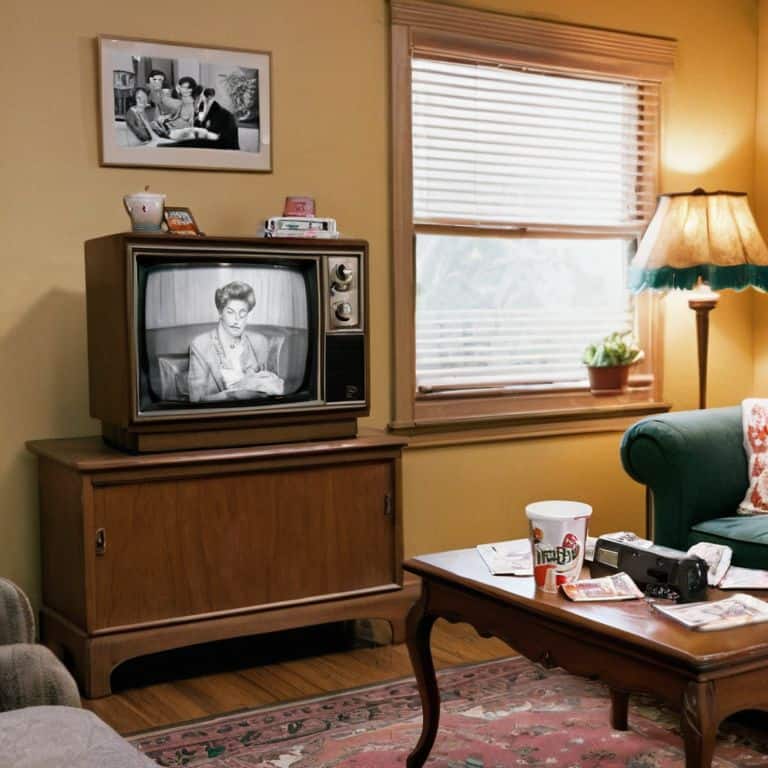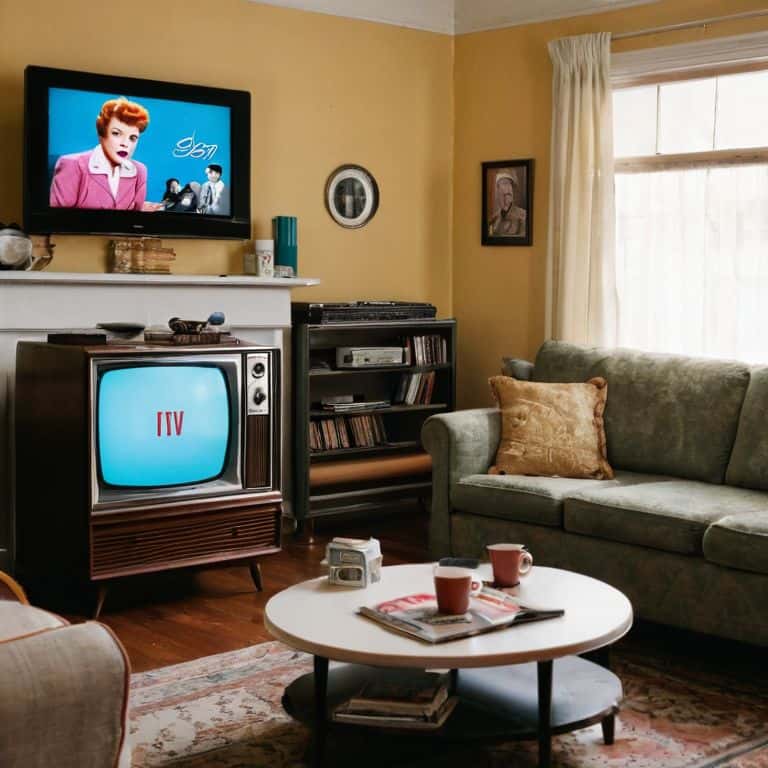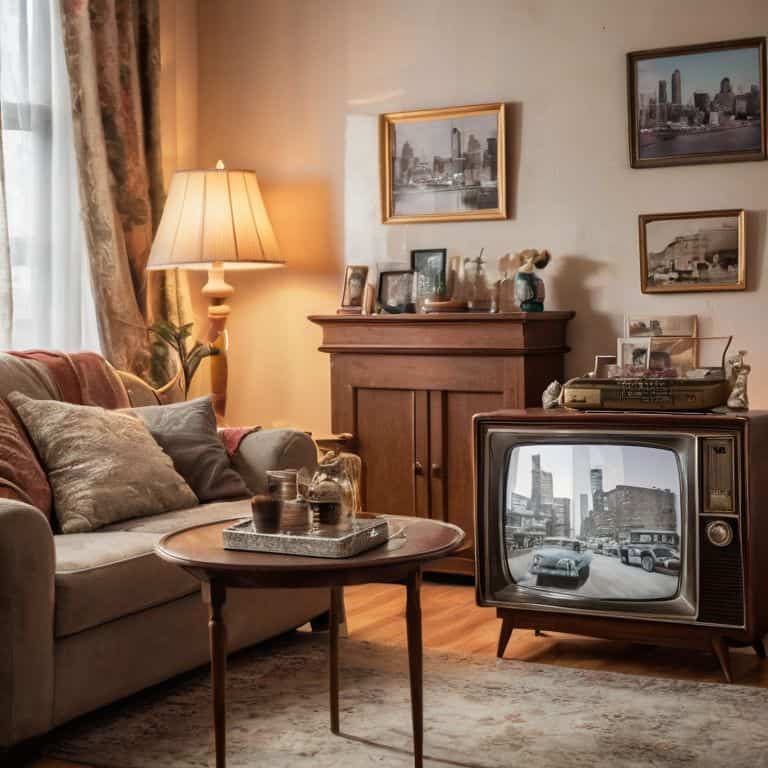I still remember the countless hours I spent in the 90s, scouring the airwaves for the latest episodes of Seinfeld and Friends, trying to make sense of how sitcoms reflect their era. There was something about the witty dialogue and relatable characters that seemed to capture the essence of our generation’s anxieties and desires. But as I delved deeper into the world of sitcoms, I began to realize that they were more than just mindless entertainment – they were a reflection of our collective psyche, a cultural time capsule that revealed the intricacies of our societal values and norms.
As someone who’s spent years studying the intersection of media and culture, I’m excited to share my insights on how sitcoms reflect their era, without the hype or pretension. In this article, I promise to take you on a journey through the world of sitcoms, exploring the ways in which they hold up a mirror to our messy, beautiful, and occasionally ugly cultural soul. We’ll dive into the nuances of social commentary and cultural critique, examining how sitcoms like The Office and Parks and Recreation use humor to tackle complex issues like identity, community, and social justice. My goal is to provide you with a no-nonsense, experience-based look at the ways in which sitcoms reflect and shape our understanding of the world around us.
Table of Contents
Sitcoms Mirror Era

As I delve into the world of sitcoms, I’m struck by the evolution of sitcom genres over the years. From the witty banter of “I Love Lucy” to the satirical humor of “South Park,” each era’s comedies have served as a reflection of its values and anxieties. The 90s, for instance, saw a rise in social commentary in comedy, with shows like “Roseanne” and “The Fresh Prince of Bel-Air” tackling issues like poverty, racism, and social inequality.
The impact of historical events on sitcoms is also noteworthy. Shows like “MASH” and “China Beach” addressed the *representation of diversity in TV, featuring characters from diverse backgrounds and tackling issues like war, identity, and social justice. These sitcoms not only entertained but also educated audiences about the complexities of the world around them. By examining the cultural significance of classic sitcoms, we can gain a deeper understanding of the era in which they were created.
The portrayal of social issues in sitcoms has continued to evolve, with modern shows like “Black-ish” and “Master of None” tackling topics like police brutality, gentrification, and identity politics. These shows demonstrate the power of comedy to spark important conversations and challenge societal norms. By analyzing the impact of historical events on sitcoms, we can see how they have influenced the way we think about and engage with the world around us.
Laughing at Ourselves Evolution of Comedy
As I delve into the world of sitcoms, I’m struck by the evolution of comedy, which has transformed significantly over the years. From the witty banter of classic sitcoms to the absurd humor of modern shows, comedy has become a reflection of our changing values and societal norms.
The use of satire in sitcoms has become a powerful tool for social commentary, allowing us to laugh at ourselves while also confronting the issues that shape our lives.
Social Commentary in Sitcoms Uncovered
As I delve into the world of sitcoms, I’m struck by the way they weave social commentary into their narrative, often with a sly wit that belies the depth of their insights. This blending of humor and critique allows sitcoms to tackle thorny issues in a way that’s both entertaining and thought-provoking.
The best sitcoms use satire to expose the contradictions and absurdities of our societal norms, inviting us to laugh at ourselves while also confronting the uncomfortable truths that underlie our daily lives.
Era Reflection in Sitcoms

As I delve into the world of sitcoms, I’m struck by the evolution of sitcom genres over the years. From the witty banter of classic shows like “I Love Lucy” to the more nuanced, character-driven comedy of modern hits like “Fleabag,” it’s clear that sitcoms have adapted to reflect the changing times. The representation of diversity in TV has been a significant factor in this evolution, with shows like “The Cosby Show” and “Fresh Off the Boat” paving the way for more inclusive storytelling.
The impact of historical events on sitcoms cannot be overstated. Shows like “MASH” and “All in the Family” tackled tough topics like war and social inequality, using comedy as a way to *portray social issues in sitcoms and spark important conversations. This cultural significance of classic sitcoms continues to be felt today, with many modern shows drawing inspiration from these pioneers.
As I explore the world of sitcoms, I’m constantly reminded of the social commentary in comedy that underlies even the most lighthearted shows. Whether it’s a winking nod to current events or a more overt exploration of social issues, sitcoms have always had a way of holding up a mirror to our collective anxieties and desires. By examining these reflections, we can gain a deeper understanding of ourselves and the world around us.
Diversity and Representation Matter
As I delve into the world of sitcoms, I’m struck by the significance of representation in shaping our cultural narrative. The inclusion of diverse characters and storylines has been a game-changer, allowing audiences to see themselves reflected in the characters and experiences portrayed on screen.
The impact of authentic storytelling cannot be overstated, as it has the power to break down barriers and challenge societal norms, ultimately leading to a more nuanced understanding of the human experience.
Timeless Classics Cultural Significance Endures
As I delve into the world of sitcoms, I’m struck by how certain shows remain timeless, their humor and commentary continuing to resonate with audiences today. This enduring appeal speaks to the power of well-crafted storytelling and the ability of sitcoms to tap into universal human experiences.
The cultural significance of these classic sitcoms cannot be overstated, as they continue to influence new generations of writers, comedians, and audiences alike, offering a unique window into the past while remaining remarkably relevant in the present.
Unpacking the Era: 5 Key Insights into Sitcoms as Cultural Reflections
- Sitcoms often serve as a barometer for societal anxieties, using humor to address and sometimes resolve the fears and uncertainties of their time
- Representation in sitcoms can be a powerful indicator of an era’s values and progress, with diverse casts and storylines signaling a shift towards greater inclusivity
- The evolution of comedic styles in sitcoms reflects changing social norms and what is considered acceptable to laugh at, from slapstick humor to satire and irony
- Timeless sitcoms that continue to resonate with audiences today often tap into universal human experiences and emotions, making their commentary on the era in which they were produced both specific and enduring
- Analyzing sitcoms through the lens of their era requires considering the historical context in which they were created, including significant events, cultural movements, and the prevailing mood of the time, to fully understand their impact and relevance
Key Takeaways: Unpacking the Cultural Significance of Sitcoms
I’ve come to realize that sitcoms serve as a unique barometer for the societal anxieties and desires of their time, offering a lens through which we can understand the complexities of human experience
Through their evolution, sitcoms have not only reflected the changing comedic tastes of audiences but have also played a significant role in shaping social commentary, tackling issues from racism and sexism to personal identity and relationships
Ultimately, the enduring power of sitcoms lies in their ability to balance humor with poignant social insight, creating a cultural legacy that continues to influence contemporary television and film, while remaining a timeless mirror to our collective soul
The Mirror of Our Times
Sitcoms are the unflinching diaries of our collective psyche, hilariously and sometimes painfully capturing the zeitgeist of an era, from the absurdities of our desires to the uncomfortable truths of our societal flaws.
Julian Thorne
Laughter and Reflection: The Enduring Power of Sitcoms

As I conclude this journey through the realm of sitcoms, it’s clear that these shows are more than just light entertainment. They are cultural barometers, reflecting the anxieties, desires, and absurdities of their time. From the evolution of comedy to social commentary, diversity, and representation, sitcoms hold up a mirror to our messy, beautiful, and occasionally ugly cultural soul. By examining the sitcoms of different eras, we gain a deeper understanding of the societal forces that shape our lives.
So, the next time you find yourself laughing at a classic sitcom or binge-watching the latest comedy series, remember that you’re not just passively consuming entertainment – you’re tuning into the cultural frequency of our collective human experience. As we continue to navigate the complexities of our modern world, let’s cherish the power of sitcoms to make us laugh, think, and reflect on who we are and where we’re headed, together.
Frequently Asked Questions
How do sitcoms balance reflecting the era they're produced in with maintaining timeless appeal?
For me, that’s the magic of sitcoms – they effortlessly blend era-specific commentary with universal themes, making them both a product of their time and timeless. Think of it like a great album: the context is undeniable, but the melodies and lyrics still resonate decades later.
Can sitcoms that tackle tough social issues truly effect change, or are they mostly just a reflection of existing cultural attitudes?
While sitcoms can’t single-handedly spark revolutions, they can indeed contribute to cultural shifts by humanizing complex issues and sparking watercooler conversations that trickle into mainstream discourse, subtly yet significantly influencing our collective attitudes over time.
In what ways do international sitcoms differ in their reflection of era-specific cultural nuances compared to their American counterparts?
International sitcoms, like Britain’s ‘The Office’ or Canada’s ‘Schitt’s Creek’, offer refreshingly distinct reflections of era-specific cultural nuances, often tackling topics like social class, identity, and politics with a subtlety and nuance that differs from their American counterparts, revealing the intricacies of local anxieties and desires.
